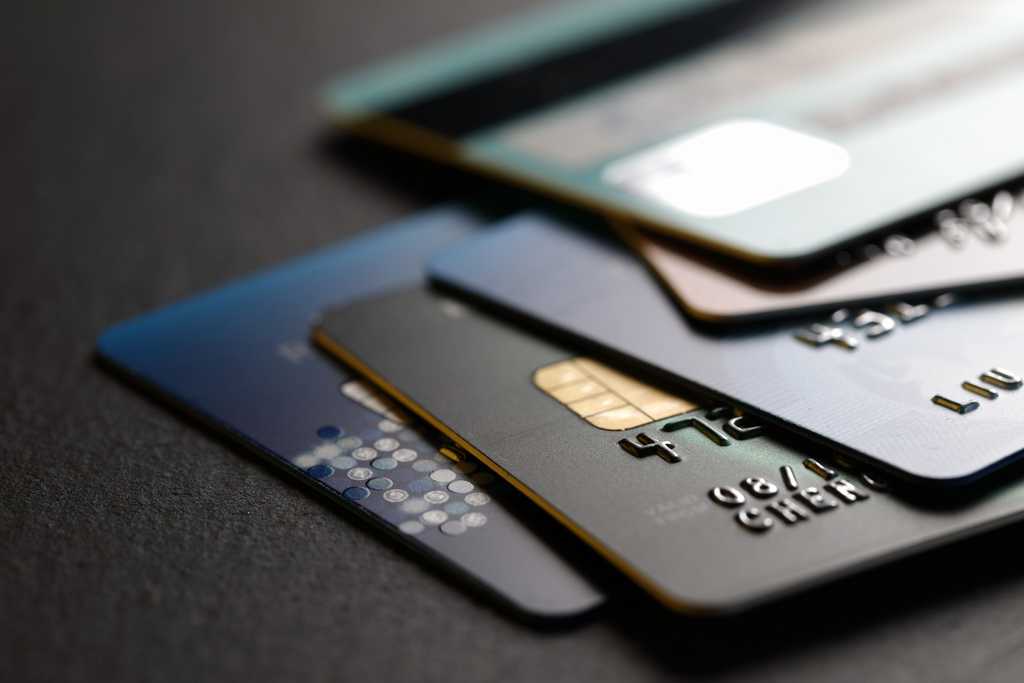Having a credit card comes with serious advantages, and that's true no matter what type of credit card you have. For example, almost all credit cards help consumers build their credit since they report their balances and payments to the three credit bureaus — Experian, Equifax, and TransUnion. Credit cards also come with serious consumer protections (including 0% liability for fraud), and many offer generous perks and rewards for each dollar you spend.
Of course, having a credit card can also be helpful any time emergency expenses pop up, and it can make life considerably easier if you need to rent a car or pay for a hotel room.
But, should you have more than one credit card? That's a question only you can answer. However, you're right to think long and hard before you commit to juggling multiple cards, especially if you have a penchant for debt.
The fact is, the average consumer carried $5,221 in debt on a credit card in 2021 per a recent consumer debt study from Experian. Considering the average credit card interest rate is currently over 16%, it's easy to see how this figure can become problematic.
If you have a single credit card but you're considering adding a new one to your wallet, it helps to know what you can gain, what you have to lose, and what to watch out for.
Key takeaways
- According to the Experian debt study cited above, the average consumer had $5,221 in debt on a credit card in 2021.
- The average consumer had 3.84 credit cards in 2020, although older consumers had more credit cards than younger ones.
- Potential benefits of having several credit cards include the ability to maximize rewards and take advantage of more cardholder perks.
- Having multiple credit cards can impact several factors that make up your FICO credit score, including your credit utilization, new credit, and the average length of your credit history.
The advantages of having multiple credit cards
Why would anyone want to juggle more than one credit card at a time? That really depends on the benefits they're after, or the specific goals they are hoping to chase with more than one card. That said, there are many potential advantages that come into play any time a consumer opts to carry more than one card in their wallet.
Maximizing credit card rewards
Having several credit cards gives you the chance to earn more rewards on everything you buy, mostly because you can select multiple cards strategically based on your spending habits. For example, you could choose one cash back credit card that offers bonus rewards in categories like dining and groceries, then you can pair it with a card that offers the highest rate of cash back on regular spending.
By using different cards for different types of purchases, you can ensure you're earning the most in rewards for each dollar you spend.
Multiple bonus offers
Signing up for several credit cards also positions you to earn multiple credit card signup bonuses over time. Since credit card signup bonuses can easily be worth $500 or more for those who can meet a minimum spending requirement, signing up for new cards can be lucrative over time.
Different credit card benefits
Also note that having several cards can help you enjoy different perks and features. For example, you can sign up for a travel credit card that offers benefits like airport lounge access or automatic elite status, then pair it with a cash back card that offers consumer benefits like purchase protection against damage or theft and extended warranties.
Keep credit utilization in check
Finally, you should be aware that signing up for several credit cards gives you the chance to increase the amount of available credit you have. This can help lower your credit utilization, which is the second most important factor that makes up your FICO credit score.
For example, carrying a $3,000 balance on a single credit card with a $10,000 limit would result in a credit utilization rate of 30%. However, adding another card to the mix with its own $10,000 limit (without increasing your debt) would drop your total utilization rate in half.
Downsides of having multiple credit cards
The fact you can sign up for multiple credit cards doesn't mean you should. In fact, there are myriad downsides to consider before you add new cards to your wallet for any reason.
Potential for more debt
Some consumers have more trouble with debt than others, and only you know how disciplined you are when it comes to paying your credit card balance in full each month.
That said, it's fairly obvious that having more than one credit card could position you to rack up debt you aren't prepared for — especially if you are constantly trying to meet minimum spending requirements for a signup bonus.
Trouble staying organized
Having multiple credit cards means having to keep up with several credit card bills every single month. It may be more difficult than you think to keep up with credit card due dates and how much you spent on each individual card.
Annual fees
If you decide on multiple credit cards that have a ton of perks and features, you may wind up paying an annual fee on a few of them. Even if you take advantage of each credit card's benefits, the cost involved in juggling several annual fees can minimize the benefits of having more than one card.
Redundant benefits
Also keep in mind that many credit cards with benefits offer the same ones, so you may wind up paying annual fees for benefits you can't use more than once.
For example, you can find more than a few travel credit cards that offer a Priority Pass Select Membership or a fee credit for Global Entry or TSA Precheck membership. Cash back credit cards also tend to offer similar perks, such as purchase protection and extended warranties.
How does having multiple credit cards affect your credit score?
Before you sign up for more than one credit card, you should also consider potential impacts on your credit score. However, it's worth noting that any personal impact you see will vary based on how responsible you are when it comes to using credit and paying your bills on time.
First, you should know that your payment history is the most important factor that makes up your FICO score (at 35%). This means that, no matter how many credit cards you have, you can score well within this factor when you pay your bills early or on time.
The second most important factor is your credit utilization rate (at 30% of your score), which we mentioned already. Most experts recommend keeping your utilization rate below 10% to 30% of your available credit for the best results, However, you can work toward achieving this goal regardless of how many credit cards you have.
Another factor that comes into play with multiple cards is referred to as new credit, and it makes up 10% of your FICO score. Every credit card you sign up for will result in a hard inquiry on your credit report, which can temporarily ding your score.
Finally, the average length of your credit history makes up 15% of your FICO score. Applying for new cards will decrease the average length of your credit history every time. This factor can also negatively impact your score, although not to the same extent as your payment history and credit utilization rate.
How many credit cards does the average person have?
According to the recent data from Experian, the average consumer had 3.84 credit cards in 2020. However, the amount of credit cards per person varied widely by generation, and older Americans chose to have more credit cards in general.
The average number of credit cards by generation in 2020:
- Generation Z (18-23): 1.91 credit cards
- Millennials (24-39): 3.18 credit cards
- Generation X (40-55): 4.23 credit cards
- Baby boomers (56-74): 4.61 credit cards
- Silent generation (75+): 3.64 credit cards
How many credit cards is too many?
Having even one credit card can be a problem if you are charging purchases you can't afford to pay off. With that in mind, there is no ideal number of credit cards for everyone.
Before you sign up for more than one credit card, it can help to answer yourself some important questions. For example, do you have a plan to keep track of your monthly payments and avoid long-term credit card debt? Also, what specific goals will having multiple credit cards help you achieve?
At the end of the day, carrying multiple credit cards can make sense if you're disciplined with your spending and able to pay your credit card balances in full each month. By choosing unique credit card offers that come with generous signup bonuses and differing perks and benefits, you can truly end up "ahead" if you use credit smartly and strategically.
On the flipside, having multiple credit cards can be disastrous if you're already struggling to keep up with the monthly payments on one. Only you know yourself and your situation, so choose wisely and with your own best interests in mind.

